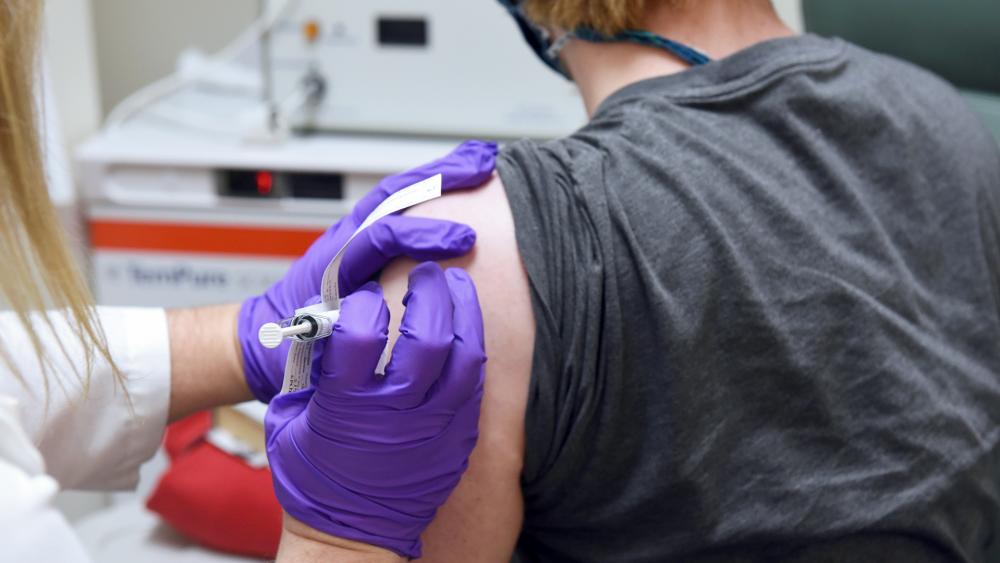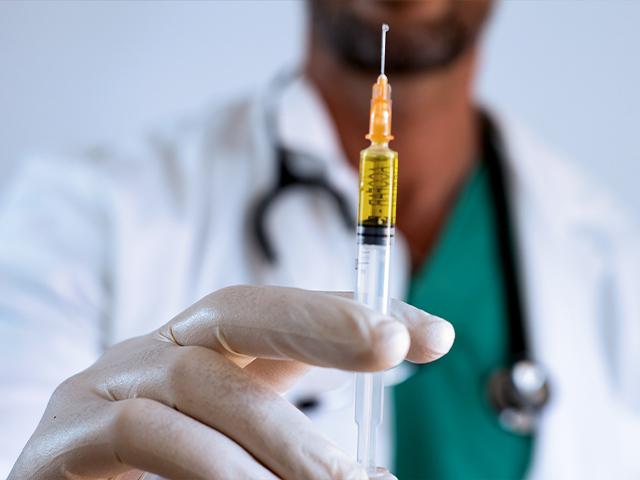While two vaccines have been approved for emergency use in the United States, others appear to be close to winning approval for distribution. Here's what you need to know about the leading brands.
Pfizer
On December 11, 2020, the U.S. Food and Drug Administration issued the first emergency use authorization to Pfizer for people over age 16. Phase three clinical trials showed it was 95% effective in preventing COVID-19 disease. Recent studies show it carries the same efficacy against the variant first detected in the U.K. As for the variant detected South Africa, it is between 75% and 85% percent effective, although further studies are needed and are ongoing.
The vaccine requires two doses administered 21 days apart. It must be shipped and stored at -94 Fahrenheit, much colder than standard freezers. After thawing, a vial of the Pfizer vaccine must be used within five days.
This vaccine uses messenger-RNA technology. That's when a portion of genetic code is delivered to the body. That code instructs the cells to make a protein consistent with the coronavirus. As a result, the immune system develops antibodies to fight the disease. Scientists say the genetic code used in this type of vaccine can be relatively quickly and inexpensively modified to adapt to mutations in the virus.
The most commonly reported side effects, which can last several days, are pain at the injection site, tiredness, headache, muscle pain, chills, joint pain, and fever. Of note, during trials, more people experienced these side effects after the second dose than after the first dose.
The pro-life Charlotte Lozier Institute reports abortion-derived cell lines were not used in the development or production of the vaccine, but sometimes were used in lab testing.
Moderna
On December 18, 2020, the FDA issued an emergency use authorization for the Moderna vaccine for use in individuals 18 years of age and older.
Phase three clinical trials showed it was 94% effective in preventing COVID-19 disease. Recent studies show it carries the same efficacy against the U.K. variant and is between 75% and 85% percent effective in the South Africa variant. Further studies are needed and are ongoing.
The vaccine requires two doses delivered 28 days apart. It must be shipped and stored at -4 Fahrenheit, which is the temperature of a regular refrigerator freezer. After thawing, it remains stable for 30 days if refrigerated and 12 hours at room temperature.
Like Pfizer, the Moderna vaccine uses messenger-RNA technology (see above). The National Institutes of Health is working with Moderna to make the vaccine more effective against rising variants such as the one first detected in South Africa.
According to the FDA, the most commonly reported side effects, which typically lasted several days, were pain at the injection site, tiredness, headache, muscle pain, chills, joint pain, swollen lymph nodes in the same arm as the injection, nausea and vomiting, and fever. Of note, more people experienced these side effects after the second dose than after the first dose.
The pro-life Charlotte Lozier Institute reports abortion-derived cell lines were not used in the development or production of the vaccine, but sometimes were used in lab testing.
Johnson & Johnson
On February 4, 2021, Johnson & Johnson applied to the FDA for emergency use authorization for its COVID-19 vaccine for people 18 and older. If approved, it could be distributed by the end of February.
Phase three clinical trials showed it was overall 66% effective in protecting against moderate to severe COVID-19 infection. Those results varied according to location. In the U.S., the efficacy was 72%, but in South Africa, where almost all cases were the South African variant, efficacy was 57%. Johnson and Johnson notes that overall, the vaccine is 85% effective in protecting against severe disease.
The vaccine requires just one dose. It can be stored in a refrigerator for three months.
Johnson & Johnson is a viral vectored vaccine. It uses an inactivated adenovirus that has been engineered to carry the genetic code for the COVID-19 spike protein. Once inside the body, that code instructs cells to make the protein to which the immune system responds by manufacturing antibodies against the disease.
According to Johnson & Johnson, the vaccine was "generally well-tolerated" in study participants and may cause "mild-to-moderate side effects typically associated with vaccinations," similar to those expected from the Pfizer and Moderna vaccines. This includes cold-like symptoms, like a headache, body aches, pain at the injection site, and a fever.
The pro-life Charlotte Lozier Institute reports abortion-derived cell lines were used in the development and production of the vaccine as well as in lab testing.
Astrazeneca
Although the Astrazeneca vaccine is already approved for use in the U.K. and South Africa, the company has not yet applied to the FDA for emergency use authorization for distribution in the United States.
Phase three clinical trials are still ongoing in the U.S. and the company isn't expected to seek FDA approval until spring.
In trials in other countries, the vaccine showed it was 62% effective at preventing symptomatic COVID-19 infections when taken as two full-strength shots.
However, in South Africa, after a million doses arrived there for distribution, the rollout was halted because new data showed it was not effective enough against the emerging South African variant to justify vaccinating people.
The pro-life Charlotte Lozier Institute reports abortion-derived cell lines were used in the development and production of the Astrazeneca vaccine as well as in lab testing.
Here's a helpful chart from the Charlotte Lozier Institute:

Your health is important. Do you have questions about nutrition, weight loss, boosting immunity or medicine? Learn more here!
Need prayer? We’re available 24/7. Call (800) 700-7000 or request prayer.
Learn why Truth Matters at CBN News.Did you know?
God is everywhere—even in the news. That’s why we view every news story through the lens of faith. We are committed to delivering quality independent Christian journalism you can trust. But it takes a lot of hard work, time, and money to do what we do. Help us continue to be a voice for truth in the media by supporting CBN News for as little as $1.











 Support CBN News
Support CBN News







